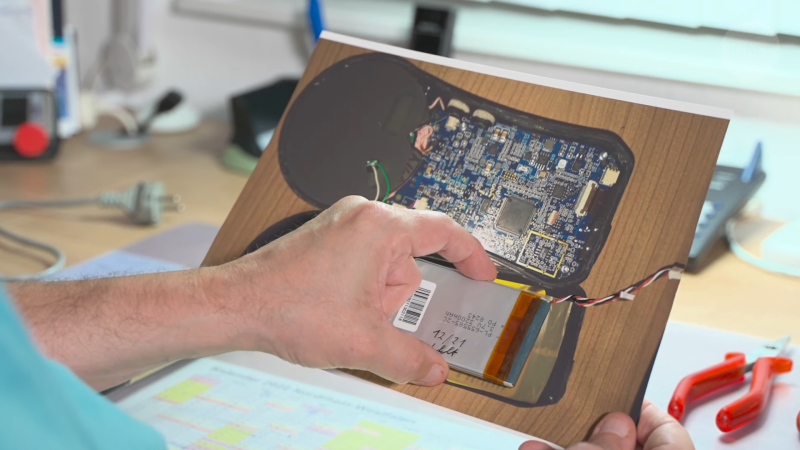
We’ve heard a ton of stories over the years about abandoned technology — useful widgets, often cloud-based, that attracted an early and enthusiastic following, only to have the company behind the tech go bankrupt or decide to end operations for business reasons, which effectively bricks hundreds or perhaps millions of otherwise still-usable devices. Now imagine that happening to your brain.
[Markus Möllmann-Bohle] doesn’t have to imagine it, because he’s living it. [Markus] suffers from chronic cluster headaches, an often debilitating condition that leaves a person with intractable pain. Having lived with these headaches since 1987, and treating them with medications with varying degrees of success, [Markus] was finally delivered from his personal hell by a sphenopalatine ganglion (SPG) neuromodulator. The device consists of an unpowered stimulator implanted under the cheekbone that’s wired into the SPG, a bundle of nerves that supply the sinuses, nasal mucosa, tear glands, and many other structures in the face.
To reverse a cluster headache, [Markus] applies an external transmitter to the side of his face, which powers the implant and directs it to stimulate the SPG with low-frequency impulses, which interferes with a reflex loop that causes the symptoms associated with a cluster headache. [Markus] has been using the implant for years, but now its manufacturer has rolled up operations, leaving him with a transmitter in need of maintenance and the possibility of facing his debilitating headaches once again.
The video below shows [Markus]’s workaround, which essentially amounts to opening up the device and swapping in a new LiPo battery pack. [Markus], an electrical engineer by training, admits it’s not exactly a major hack, but it’s keeping him going for now. But he’s clearly worried because eventually, something will happen to that transmitter that’s beyond his skills to repair.
There’s cause for hope, though, as the intellectual property of the original implant company has been purchased by an outfit called Realeve, with the intention to continue support. That would be a lifesaver for [Markus] and everyone relying on this technology to live a normal life, so here’s hoping there’s no need for future hacking heroics. But as the video below details, there is a lot of neurotechnology out there, and the potential for having that bricked by a corporate decision has to be terrifying to the people who depend on them.
Thanks for the tip, [Perry].
0 Commentaires